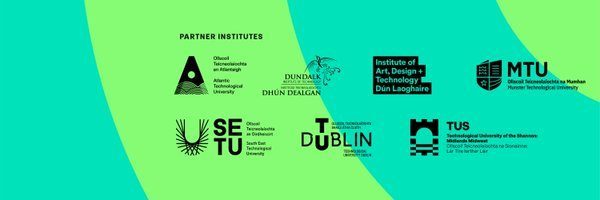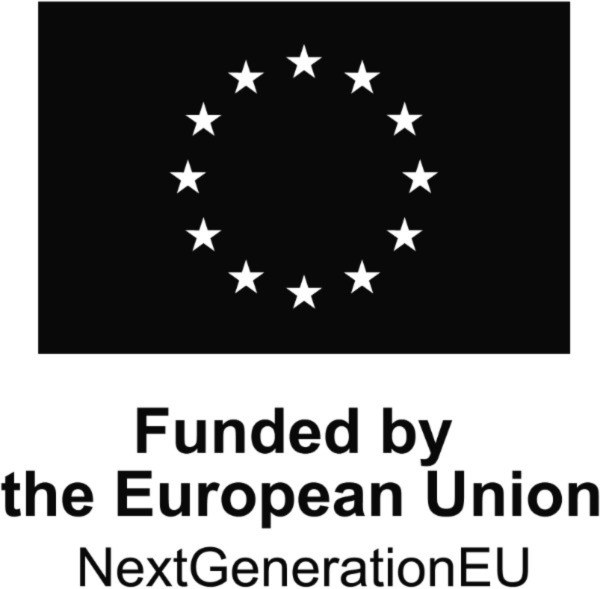N-TUTORR is a partnership of the entire Technological Higher Education sector, working collaboratively with a shared goal. The initial proposal for funding submitted under the National Recovery and Resilience Plan (NRRP) evolved from the concept of digital transformation in Higher Education.
The project objective is to transform learning, teaching and assessment by focusing on transforming the student experience and developing the capabilities of all staff in the seven partner institutions, with focus on digital transformation, the Sustainable Development Goals (SDGs), transforming Teaching and Learning and Equality Diversity and Inclusion (EDI). The project is designed to enable conformity of approach for each partner, whilst allowing individual institutional autonomy with a goal to positively impact 9,600 students and 4,000 staff across the sector. The project consists of 3 streams, with 9 work packages and 32 deliverables to be achieved. It commenced in April 2022 with a completion date of December 2024.

The N-TUTORR project is supported by the Higher Education Authority (HEA) and the Programme Management Office (PMO) in the Technological Higher Education Association (THEA). The project is a partnership of the entire Technological Higher Education sector and the remaining Institutes of Technology, working collaboratively.
Atlantic Technological University (ATU)
Dundalk Institute of Technology (DkIT)
Institute of Art, Design + Technology, Dún Laoghaire (IADT)
Munster Technological University (MTU)
South East Technological University (SETU)
Technological University of Dublin (TU Dublin)
Technological University of the Shannon (TUS)

To learn more about Streams, please click here
The work of the NTUTORR project centres around six key themes:
- Academic Integrity
- Digital Transformation in Teaching and Learning
- Education for Sustainability
- Equality Diversity & Inclusion (EDI)
- Universal Design for Learning (UDL)
- Employability (Students)
Each N-TUTORR stream is made up of three focussed, high-impact work packages.
These have been designed to maximise the benefits for students, for staff and for our partner higher education institutions in a consistent, sector-wide approach that is scalable and sustainable.
Work Package 1.1: Sustainable Pathways to Higher Education
Building on the strong access track record in the technological higher education sector, this work package (WP) rethinks lifelong learning to transform learning and teaching through flexible pathways to higher education.
These are designed to provide opportunities for engagement that include micro-credentials, part-time and blended learning programmes.
Work Package 1.2: Empowering Students to become Change Agents
Centred around student empowerment and community-building, this WP involves co-creating inclusive schemes and initiatives with students to support and enhance student engagement and partnership activities.
This WP aims to build capacity for meaningful student/staff partnership across the sector and develop models of good practice to support ongoing transformation.
Work Package 1.3: Academy for Sustainability, Leadership & Employability
This WP provides opportunities for students to develop skills and literacy in sustainability and global citizenship, digital identity and transformation, EDI and mental health and well-being.
It will provide flexible, accessible and self-directed learning pathways for students to earn a "digital backpack" of credentials.
Work Package 2.1: Sectoral activities to develop staff capabilities to build TU learning, teaching and assessment transformation, resilience and sustainability
The establishment of a sector-wide Sustainable Higher Educations Steering Group, which will act as a community of practice (COP), is the core of this WP.
This WP aims to foster a collaborative approach to staff development. The COP will establish the principles and values which underpin curriculum transformation, resilience and sustainability, as well as advising on the development of a toolkit for curriculum transformation.
Work Package 2.2: Development of a transformational sustainable higher education curriculum framework
This WP focuses on curriculum development and enhancement through embedding of universal design for learning (UDL) and digitally enabled content delivery and assessment. This will support the development of graduate capabilities for digital transformation, resilience and sustainability in higher education.
The curriculum framework will be aligned to NextGenerationEU, the UN Sustainable Development Goals, and the National Professional Development Framework.
Work Package 2.3: Developing capabilities of all staff to support transformative sustainable higher education and resilience
This WP aims to establish a baseline of staff digital capability and, leading from this, to plan, co-ordinate and recognise staff engagement with professions development activities, both on a national and institutional level.
Encompassing academic teaching staff, technologists, learning technology staff and professional services staff, this WP aims to enable all staff to holistically support the student experience, addressing all aspects of their engagement with learning, teaching and assessment.
Work Package 3.1: Sustainable Learning & Pedagogical Environment: digitally enabled examination/assessment embedding academic integrity
The components of this WP will support higher education institutions in managing robust examination and assessment processes and methods with associated software solutions and systems.
The hard pivot to remote academic delivery and assessment during the Covid-19 pandemic highlighted the importance of (a) embedding efficient and effective quality-assured examination and assessment solutions, as well as (b) the need for training for staff and students alike in the use of such solutions.
Work Package 3.2: Digital Campus
This WP will transform the way teaching, learning and assessment services and supports are organised and provided to learners.
Hybrid learning and media/delivery spaces will broaden access to campus programmes for learners who cannot, for whatever reason, commit to attending campus, while also addressing the needs of a more diverse learning group than ever before.
This WP also aims to build capacity and resilience for suture emergencies which may require the full or partial physical closure of campuses, and to provide a deep sector-wide preparedness for other kinds of continuity and performance challenges.
Work Package 3.3: Improve flexibility and accessibility of learning resources
This WP aims to improve student learning experiences by improving and developing digital infrastructure that will maximise access by and engagement with learners.
The heart of this WP is embedded in a digital-by-design approach ensuring state-of-the-art digital infrastructure and ICT provisions to support and equitable, sustainable, flexible and engaging experience for learners, in alignment with UN Sustainable Development Goals 4, 5, 9 and 10.



